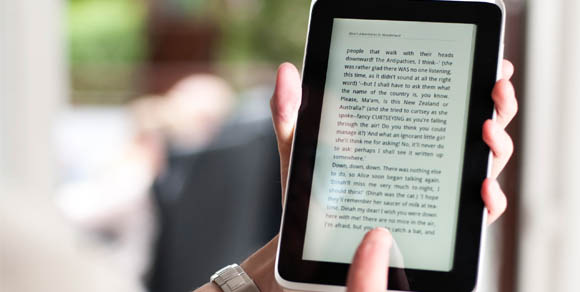With the popularity of e-books in public libraries surging, many academic libraries are still tentatively acquiring e-book collections while debating how they might add to or detract from student research methods. Julie Gilbert and Barbara Fister of Gustavus Adolphus College have published an article in College & Research Libraries that tackles this very question though a survey of 417 students. The aim of their study is to investigate the potential impact of e-books on students reading habits through their current e-book use and their perception of how e-books might alter their reading behaviors in the future.
Even though close to half (42%) of students surveyed already have either e-reader devices or e-reading software on their mobile device or computer, the most prominent use for e-readers was for fiction (84%) and recreational reading rather than research (20%). Perhaps not surprisingly, more than half (56%) of the most frequent visitors to the library said they would be likely to use e-books provided by the library, compared to only a third of those who seldom or never visit the library. This, along with the finding that students who already have e-readers are more likely to use the library for non-research purposes, even for print materials, suggests that those most open to e-books are already the most eager readers.
The survey respondents appeared to be split on their feelings about the ease of e-books. A little more than a third (38%) said e-books would make research easier, almost a third (32%) said e-books would make research more difficult, and nearly the same amount (30%) were unsure. The most cited benefit of e-books was their portability and ease of use, and those who preferred print often did so because it was familiar, as well as easier to flip back and forth between several print books while researching. Preference of e-books was also highly variable depending on the survey respondents’ major. Natural Sciences and Business students were much more likely than those in the Arts and Humanities to embrace research in electronic format.
So, it seems that e-books are gaining ground as a viable format for research to some, but they are still primarily seen as most useful for recreational reading or part of an increasingly diverse mixture of research methods.
You can peruse the full article, available via Open Access by College and Research Libraries, here.
Note: This post is part of our series, “The Weekly Number.” In this series, we highlight statistics that help tell the story of the 21st-century library.
